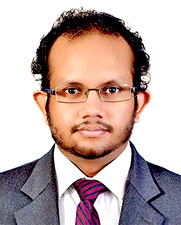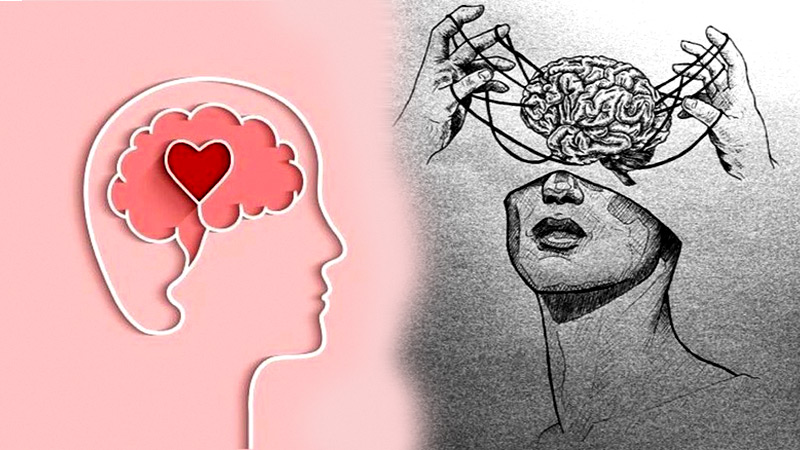
Dr. R.C. Anderson
The mental health of undergraduates in Sri Lanka has become a critical concern in the current context of economic instability.
As the country deals with significant financial difficulties, students are experiencing intense pressures that affect their mental well-being. Financial insecurity, academic pressure, and an uncertain future are intensifying the mental health struggles of the youth pursuing higher education.
This situation requires immediate attention to support the mental and emotional well-being of undergraduates, ensuring they have the resilience and resources necessary to navigate these challenging times.
In this interview, I discuss the mental health crisis among undergraduates amid the economic turmoil with the Medical Officer in charge, at the Parliament Medical Centre, Sri Jayawardanapura, Dr. R. C. Anderson.
Dr. Anderson shares his insights on the unique challenges faced by students, the psychological impacts of the economic crisis, and potential strategies for providing effective support to this vulnerable population. His expertise provides a deep understanding of the mental health challenges faced by undergraduates, highlighting the critical need for targeted interventions.
Q: What kind of interaction do you have with university students?
A: I have extensive experience working with the younger generation, particularly with Sri Lankan students. I have served as an assistant counsellor, providing guidance to university and school students from diverse backgrounds, although it was not an official counselling role.
I have interacted with local students and those studying abroad, who often approach me for advice on significant life decisions. My focus has been on helping them transform negative thoughts into positive ones, regardless of their circumstances.
During my undergraduate life in Europe, I gained exposure to students from various nationalities, which enriched my understanding and ability to assist others. In Sri Lanka, I have worked with approximately 20 to 50 university students, particularly those in rehabilitation centres. I frequently engaged in speaking and training programs, sharing my knowledge to help these students improve their lives.
Q: Do you think that the current economic crisis has an impact on university students’ mental health?
A: Definitely. The economic crisis in Sri Lanka profoundly affects university students across all higher educational institutions, not just Government universities. These students, coming from various financial backgrounds, face significant challenges.
One major impact of this is on families, who often must make extreme sacrifices, such as selling land, to ensure their children’s education.
The intense competition to pass the Advanced Level examination exacerbates this, leading to immense stress on most middle-class families. Both parents often need to work, and the increasing needs of the children heighten this pressure on parents.
The financial burden extends to affording tuition classes, and many students rely on these classes to succeed. Although online education during the pandemic offered some relief by providing affordable learning packages, the financial strain persists. Many parents can only afford one meal a day, which affects students’ nutrition and overall health.
University students often cannot afford proper meals, impacting their physical health. Even those who complete their education face a bleak job market that doesn’t match their skills, prompting many to consider migration for better opportunities. This mismatch between education and employment opportunities is a significant tragedy which severely impacts the mental health of university students.
The unfortunate truth is that these issues still lack solutions. Authorities must expand the protocols that govern students’ lives. For instance, they should minimize theoretical content and emphasize practical experience in the syllabi. Educational policies must be tailored to the Sri Lankan context, considering student behaviour and goals such as achieving social mobility through education.
Q: What are the Mental Health Disorders which are abundant in the Current University Context of Sri Lanka?
A: Mental health problems are prevalent among university students, often manifesting as adjustment disorders within the first six months upon their entrance to the university context, due to difficulties in coping, which can escalate into depression.
Economic issues, such as insufficient funds for food, medicine, and other essentials, are also significant factors which contribute to these conditions. According to my point of view, A potential solution is advancing scholarship payments, like ‘Mahapola’, by two months. Additionally, integrating technology can help prevent students from being misled. For instance, offering online resources for students from remote areas to review accommodation and food availability and prices can help them make informed choices before coming to campus.
Q: What steps can be taken to avoid mental health-related problems in the University context?
A: Students’ coping abilities often depend on their family backgrounds, and some may experience recurring behavioural issues that affect their lives. To uplift mental health, universities should implement motivational and positive thinking programs.
The curriculum should be refined to include practical skill assessments that allow students to earn money, such as marketing students partnering with companies such as Pizza Hut for projects.
Unfortunately, these opportunities are currently limited, and accessibility should be broadened to alleviate financial burdens on students and their families. Students cannot navigate these challenges alone and need support and connections.
Another suggestion is for lecturers to revise grading rubrics to include attendance. For example, if a student is consistently late, those minutes can be tallied and deducted from their monthly financial scholarship as a penalty. This approach would encourage discipline and indirectly reduce academic stress.
Q: What areas should be developed to break the existing stigma surrounding mental health treatment methods?
A: The administration should take proper steps to implement programs that cater to the needs of the diverse community within the university. The counselling centres should be safe places for students, and the students should be made aware of the counselling centres at the time of their orientation. The students should feel secure in these centres and not be afraid to discuss their problems with a counsellor.
Q: What immediate solutions can students pursue in this situation as individuals?
A: The students should work on improving their attitude. Changing one’s mindset cannot happen overnight. The mind is ingrained with certain thinking patterns, and it’s not feasible to change them quickly.
Ideas require time to take root in the mind. Students need to put in effort by reading quality books, participating in seminars, and engaging with support groups. Additionally, these students should maintain open communication with their parents and siblings, as families play a crucial role in fostering the courage to change.
They should also be willing to seek support from counselling centres and related authorities to overcome those situations as soon as possible, without adhering to societal stigmas.







